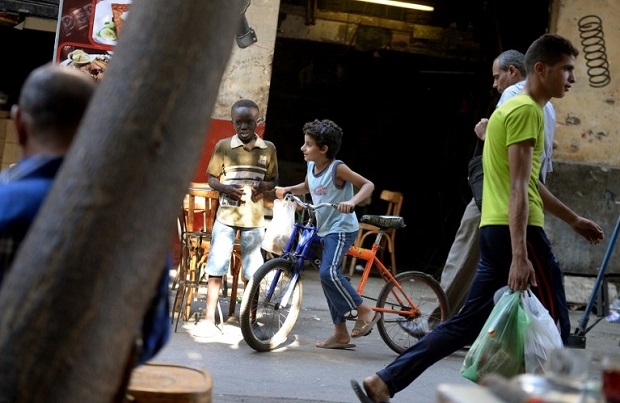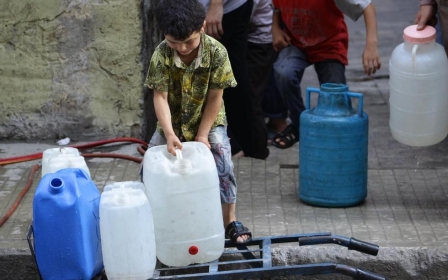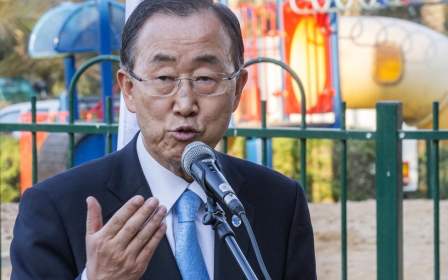Rise in child abductions sparks fear among Egyptians

CAIRO – Um Abdullah was selling toys outside the famous al-Hussein mosque in downtown Cairo when her three-year-old son suddenly disappeared.
“He was abducted as he was playing with his bicycle,” Um Abdullah, 39, told Anadolu Agency (AA).
Last year, Um Abdullah was sitting outside the al-Hussein mosque selling toys to provide money for her three children when police forces showed up to clear street vendors from the area as Egypt’s prime minister was visiting the mosque.
In the confusion that followed the police raid, the three-year-old child, who was playing in front of her, disappeared.
“I left no stone unturned in search of my beloved son,” Um Abdullah said as tears rolled down on her cheeks.
Roaming the streets for days in search of the little boy, Um Abdullah came across a female street vendor in the same area, who confessed that she had kidnapped the boy and sold him to another woman for 200 Egyptian pounds ($25).
“Though the woman had been detained, there was no news about my son,” Um Abdullah said.
Abdullah's case has already made headlines in Egypt with several Facebook pages campaigning for his return.
On the rise
Child abductions seem to be on the rise in Egypt since 2011, when a popular uprising overthrew longtime autocrat Hosni Mubarak.
The political transition has been accompanied by an almost total collapse of Egypt’s security apparatus, with police absent from the streets for extended periods of time.
"Since the revolution, cases of abduction have been on the rise over the past three years," Hani Helal, secretary-general of the Egyptian Coalition for Children's Rights, told AA.
He said that between 300 and 400 cases of abductions were reported annually over the past three years.
"So far, 43 cases of child abductions have been reported in the first half of this year," he added.
According to rights groups, children aged between one and five years old are most vulnerable to abduction. Most of the abduction cases have been reported in rural areas.
Helal said that the motives for child abductions vary from demanding ransoms to organ trafficking to forced begging.
The child rights activist blamed the authorities for the alarming rates of child abductions in Egypt.
"There has been a regression in terms of respecting the rights of children and women in Egypt in general," he said, heaping the blame on the state-run National Council for Motherhood and Childhood.
"The absence of the council's role has made the issue of children's rights almost absent on the government's agenda," he said.
Denial
The Interior Ministry, meanwhile, denies that child abductions have become a phenomenon in Egypt.
"The security agencies spare no effort in dealing with any report about child abductions," ministry spokesman Abu Bakr Abdel Karim said.
The alarming reports about child abductions, however, have left some Egyptian parents worried about going out with their children.
"Whenever I go out, I never take my eyes away from my two children fearing that they might be kidnapped," said Hanaa Helmi, a mother of two in Cairo.
"In most cases, I now prefer to avoid crowded areas in order to keep them safe," she said.
Helal, the children's rights activist, has called for the creation of a national plan to deal with the issue of child abductions in Egypt.
"We also need to raise public awareness about the issue," he said. "There is also an urgent need to change the media discourse and educate the media about how to address the issue.”
Um Abdullah still hopes that her ongoing efforts will result in bringing back her son.
"I still dream of looking at his face and taking him into my arms as I used to do," she said.
Stay informed with MEE's newsletters
Sign up to get the latest alerts, insights and analysis, starting with Turkey Unpacked
Middle East Eye delivers independent and unrivalled coverage and analysis of the Middle East, North Africa and beyond. To learn more about republishing this content and the associated fees, please fill out this form. More about MEE can be found here.




